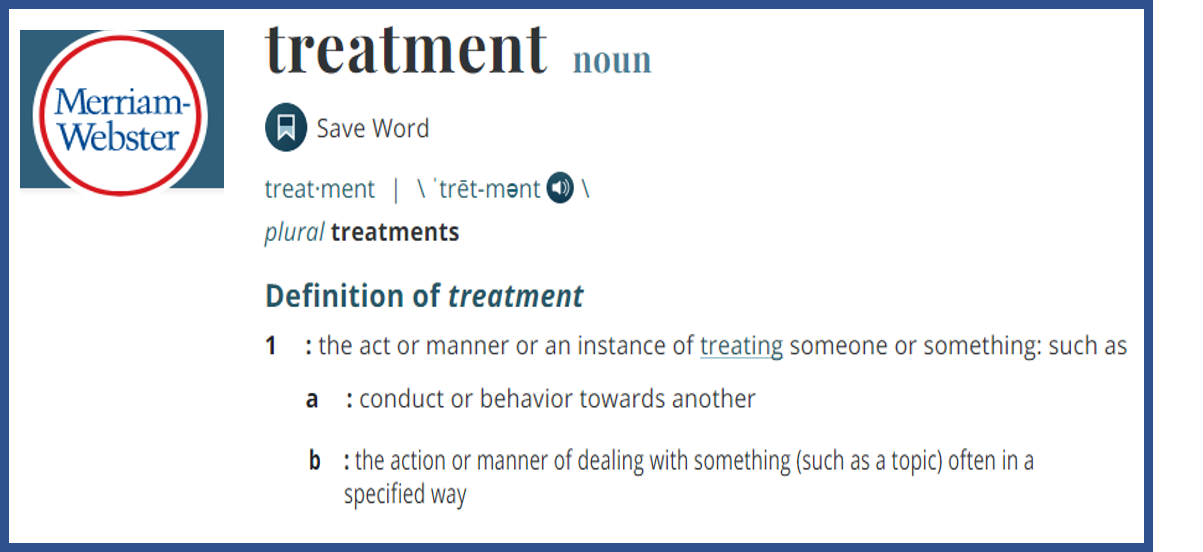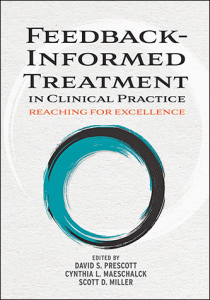 “We don’t do ‘treatment,’ can we use FIT?”
“We don’t do ‘treatment,’ can we use FIT?”
It’s a question that comes up with increasing frequency as use of the Outcome and Session Rating Scales in the helping professions spreads around the globe and across diverse service settings.
When I answer an unequivocal, “yes,” the asker often responds as though I’d not heard what they said.
Speaking slowly and enunciating, “But Scott, we don’t do “t r e a t m e n t.‘” Invariably, they then clarify, “We do child protection,” or “We’re not therapists, we are case managers,” or providers in any of a large number of supportive, criminal justice, or other statutory social services.
How “treatment” became synonymous with psychotherapy (and other medical procedures) is a mystery to me. The word, as Merriam-Webster defines it, is merely the way we conduct ourselves — our specific manner, actions and behaviors — towards others.
With this definition in mind, working “feedback-informed” simply means interacting with people as though their experience of the service is both  primary and consequential. The challenge, I suppose, is how to do this when lives may be at risk (e.g., child protection, probation and parole), or when rules and regulations prescribe (or proscribe) provider and agency actions irrespective of how service users feel or what they prefer.
primary and consequential. The challenge, I suppose, is how to do this when lives may be at risk (e.g., child protection, probation and parole), or when rules and regulations prescribe (or proscribe) provider and agency actions irrespective of how service users feel or what they prefer.
Over the last decade, many governmental and non-governmental organizations have succeeded in making statutory services feedback-informed — and the results are impressive. For recipients, more engagement and better outcomes. For providers, less burnout, job turnover, and fewer sick days.
I had the opportunity to speak with the members and managers of one social service agency — Gladsaxe Kommune in Denmark — this last week. They described the ups, downs, and challenges they faced — including retraining staff, seeking variances to existing laws from authorities, — while working to transform agency practice and culture. If you work in this sector, I know you’ll find their experience both inspiring and practical. You can find the video below. Another governmental agency has created a step-by-step guide (in English) for implementing feedback informed treatment (FIT) in statutory service settings. It’s amazingly detailed and comprehensive. It’s also free. To access, click here.
Cliff note version of the results of implementing FIT in statutory services?
- 50% fewer kids placed outside the home
- 100% decrease in complaints filed by families against social service agencies and staff
- 100% decrease in staff turnover and sick days
OK, that’s it for now. Please leave a comment. If you, or your agency, is considering implementing FIT, please join us for the two-day intensive training in August. This time around, you can participate without leaving home as the entire workshop will be held online. For more information, click on the icon below.
All the best,
Scott
Scott D. Miller, Ph.D.
Director, International Center for Clinical Excellence


mental Health clinic in San Anselmo
Feedback Informed Treatment in Statutory Services (Child Protection, Court Mandated)